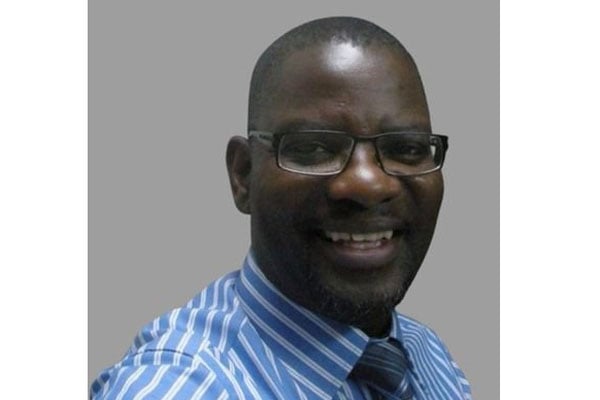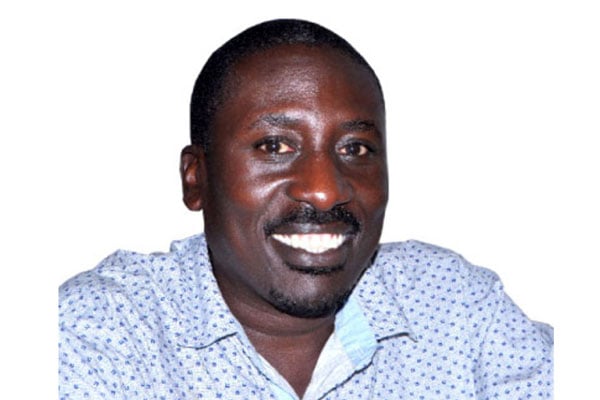
Author, Benjamin Rukwengye. PHOTO/FILE.
In early 2019, I was selected to join about 1000 other youth entrepreneurs in Addis Ababa, where the African Union Commission had convened to launch an audacious goal of getting 1 million youth into education, employment, and entrepreneurship by 2021.
It was my first time in Addis and I did what many adventurous visitors do – venture out for a walk to see what it is like. I shouldn’t have, at least not by myself. Just after I turned the corner from my hotel, I was joined by a guy who politely introduced himself and asked if I was a first-time visitor, to which I replied in the affirmative. “Where from?” He asked. “Uganda,” I replied.
He expressed joy at finally meeting someone from Uganda, saying that his father had worked at the Ethiopian Embassy in Kampala in the 80s and had only good things to say about the country and its people.
He asked to join me on the walk and I said yes because ‘What’s the worst that could happen?’ For the next 20 minutes or so, we walked and talked about Uganda and Ethiopia and the sociopolitical dynamics that bind us together. The people of two countries might be different in ethnic makeup but we aren’t so dissimilar in our political and economic struggles. So, there was a lot to talk about.
Somewhere along the way, we had made a couple of lefts, rights, Us, and upturns, and I lost my sense of direction. I didn’t quite know where I was or how far it was from my hotel. I started to get jittery and told him that perhaps, it was best that we head back to the hotel as it was getting dark.
“No problem,” he responded, suggesting a shorter route back. The route went through a row of corridors and then suddenly into what looked like a dingy courtyard with shanty bars. Here, we came face to face with a group of menacing fellows who also looked like they had been imbibing on Ethiopia’s version of Kaveera waragi. Suddenly, there was a lot of shouting between them and my friend.
All of it was in Amharic but I could tell that none of it was welcome remarks for this guest from Uganda. It was unnerving. The long and short of it is that I parted with $250 to buy my freedom. When I was finally back at the hotel and narrated the ordeal to another delegate, I was told that it was a common scam that many guests in the city are lured into.
Apparently, my new friend was in fact a plant by the same racket, placed at hotels to lure unsuspecting guests. But also, that it could have been worse. Apparently, sometimes guests are led into alleyways, to ostensibly, get an authentic feel of Addis. While there, they get served some cheap wine and introduced to a bevy of night ladies to dance with. 10 minutes in, you are asked to part with five hundred dollars or more, for the entertainment or get dealt with.
Kampala, like many other cities, has its fair share of criminal activity. Versions of that Addis story may be commonplace here as well. Keen followers of the news know that senior government and security officers have, in the past, been implicated in similar incidents of fleecing foreigners. But that same breakdown of systems, and rule of law trickles down in ways that are hard to control.
So, whereas these kinds of crimes where tourists and investors get played might not always make the news and give the country a bad rep, it is not the same when elements with less sophisticated methods join the fray. When crime stops speaking English, requiring paperwork and wearing suits; when it descends from Parliament, hotel lobbies, fancy eateries, and air conditioned offices, you know you are on sinking sand.
That’s when chilling images and CCTV footage of people getting clobbered with pavers and iron bars outside their gates start to trend. That’s when the possibility that one can lose one’s life over a phone, laptop, or wallet becomes a reality. It is down to the poverty, inequity, injustice, and deprivation that continue to be ignored. It also means that nobody is safe – not locals, not tourists, not the rich, and not the poor.
Unfortunately, these are also the sorts of socioeconomic breakdowns that not even increased policing and high-handedness can fix.
Benjamin Rukwengye is the founder, Boundless Minds. @Rukwengye




